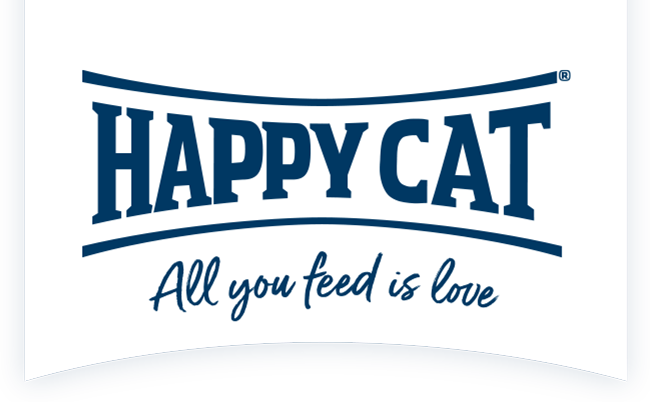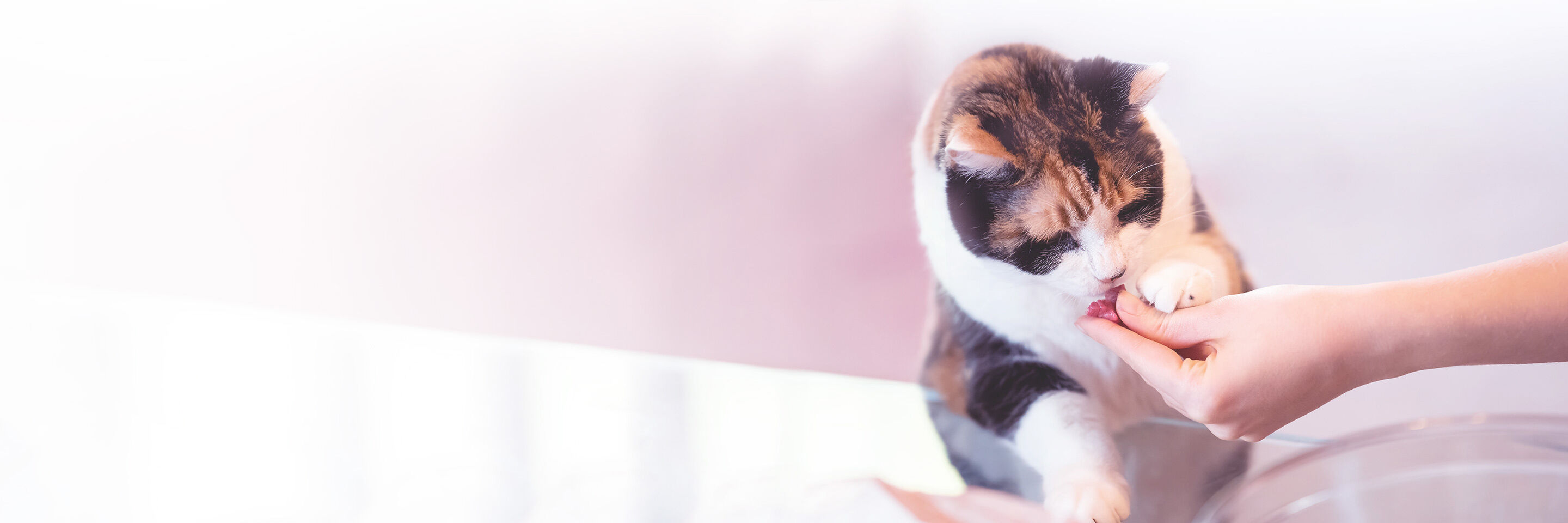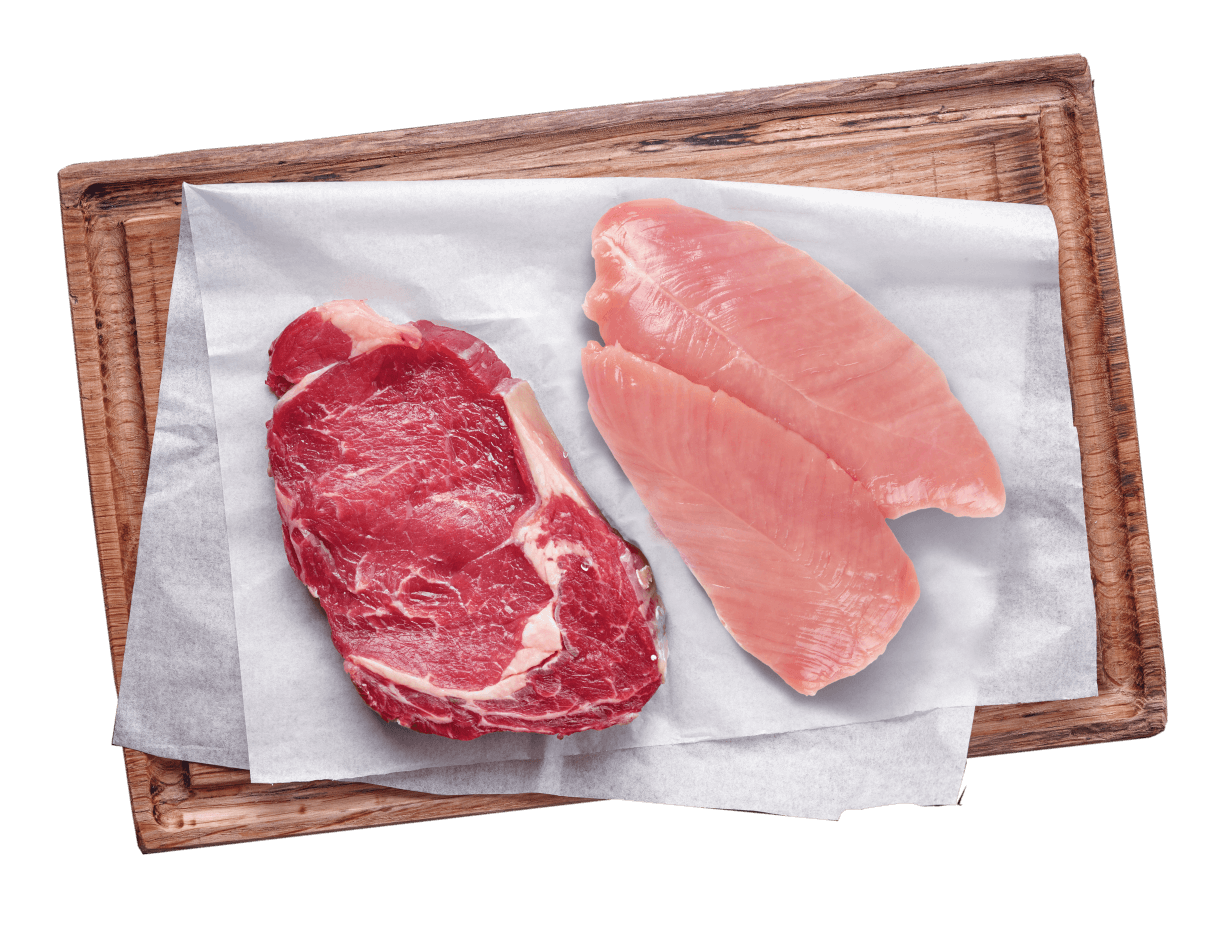There are so many different types of cat food that it is not easy to keep up with all of them. Especially because there are many differences with respect to the composition. One of the main ingredients that your cat’s food should contain is protein. So why is protein essential for your cat? Or rather, which proteins does she need and which other nutrients should a healthy cat food contain?
How do cats eat in nature?
Food essentially consists of carbohydrates, fats, proteins and water, plus additional vitamins and minerals. But the human body has quite different requirements of its food than your cat’s body requires of its feed. This is because people are more or less omnivorous and, even if your cat sees itself as a cuddly indoor pet, they actually are predators that need to hunt their food in nature. For this reason, cats need a lot from their food. A variety of prey animals in nature not only covers the energy requirement in general, it also provides an optimum variety of amino acids (the components of proteins) and fatty acids (the components of fats). Such a balanced diet is the best way for cats to prevent deficiencies, guarantee performance and live healthily to a ripe old age.
Proteins in the cat food: What does it all come down to?
Healthy cats need more protein in their food compared to dogs. In nature, cats live a strictly carnivorous life, which means that they are purely meat eaters. For this reason they do not tolerate carbohydrates as well as dogs, and they also need to absorb more essential nutrients through their food, and these occur primarily or exclusively in animal tissues. The exception to this protein content rule applies to cats with kidney disease. For them, a food with a lower protein content is gentler on the kidneys. If your cat suffers from a kidney insufficiency or other health problems, we recommend that you discuss a suitable diet first with your vet. Like people, cats also need essential amino acids and fatty acids. These are nutrients that their body is unable to make itself, so they have to be absorbed from their food. For example, cats need to absorb adequate amounts of the amino acids taurine and arginine and the fatty acid arachidonic acid from their food. A taurine deficiency can lead to heart damage, weakened immune defences and retinal damage, for example.
Does my cat also need plant-based food?
Plant components in the cat food both supply your cat with important vitamins and, in the form of carbohydrates, can be used as an energy supply. These carbohydrates must, however, be available in a form that your cat can use easily. To return to our example with the mouse, if the mouse has eaten carbohydrates, then the cat will naturally absorb them as well. The amount of carbohydrates is comparatively small, however, and it would have been pre-digested by the mouse before it died, enabling the cat to absorb it more easily.
Depending on the food variety, grains and other carbohydrate sources also supply a natural protein content of between 8% and 14%, in addition to dietary fibre and carbohydrates. Plant protein can be added to the recipes in a highly-concentrated form as ‘plant protein extract’ or ‘protein isolate’. Happy Cat has developed the Natural Life Concept on the basis of this knowledge, using it as the basic principle behind all the product recipes. This is why all Happy Cat products have a high proportion of very high-grade animal protein sourced from meat or fish. But cats need the vital substances mentioned above, in addition to meat or fish. So the Natural Life Concept combines high-grade protein with cat-friendly carbohydrates, high-grade oils, selected herbs and dietary fibre to promote digestion. The body is thus supplied holistically from nature.
The Happy Cat Natural Life Concept®
So your cat eats the very best
Can cats actually be vegetarians?
In short, no. A purely vegetarian or even vegan diet for cats would not be species-appropriate without the addition of enough of the appropriate nutrients. A purely vegetarian diet creates a high risk of deficiency symptoms, especially during the growth phase, pregnancy or while nursing. The substances that cats most frequently lack when given an unbalanced vegetarian diet include the essential substances mentioned above (taurine, arachidonic acid and vitamin B12). These components are either lacking entirely (taurine, B12) or occur in very few plant-based foods (arachidonic acid). Even vegetarian complete foods are not necessarily adapted to the nutrient requirements of cats, so we strongly recommend that you discuss any far-reaching change of diet with your vet so that you can create a balanced menu.
Sources
Dillitzer, N.: Tierärztliche Ernährungsberatung. Elsevier 2012
https://www.gesetze-im-internet.de/futtmv_1981/FuttMV_1981.pdf, p. 37



